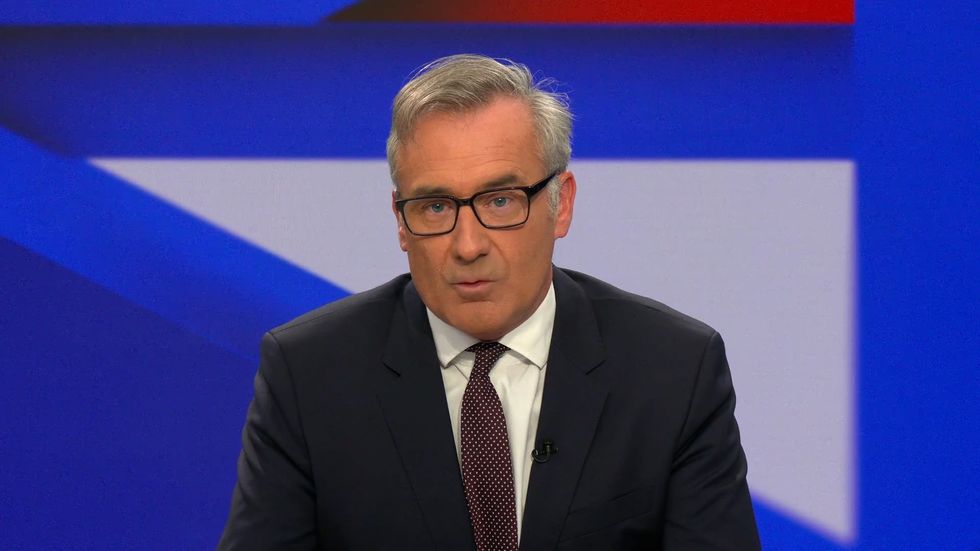Colin Brazier: History is now dictated by identity politics

Colin Brazier
GB News

What are the two manual jobs that defined Britain? You could make a case, I think, for mining and fishing. How strange it is then that today’s date, October the 14th, is the anniversary of our nation’s worst ever mining disaster and worst ever fishing disaster. By a terrible coincidence, both happened on the same date, three decades apart. In a world where we set aside dates to remember some really very trivial things, it tells you something that October 14th usually passes by each year without comment.
439 men and boys died in the Senghenydd pit explosion in South Wales in 1913.
On the same date, 32 years earlier, 189 fishermen from the ports of Berwickshire drowned when they put to sea as a hurricane struck. Here's the memorial which stands to this day.
Nobody now lives who survived these tragedies. But, as Black History Month – which we’re currently in the middle of — reminds us, what we choose to remember as a culture isn’t accidental, it’s often political. As Churchill said, history is written by the victors. The people running a culture get to decide what events should be memorialized, which individuals lionized.
And by that measure, many of our ancestors won’t get a look in. It doesn’t fit the narrative. In 1881, for instance, when those 189 men of the Scottish borders were dashed against the rocks, the nurse Mary Seacole died.
Her posthumous star has been rising rapidly in recent years. Statues, parks named after her, even a campaign to put her on the new £50 note. She was undoubtedly heroic, but the heritage industry that’s built up around her tells us more about identity politics, that she was a black Victorian, than it does about her actual achievements.
I’ve argued before that there is what economists call an opportunity cost when a culture decides there is only one prism through which history can be viewed. It means, for instance, that we overlook the world-changing and unique achievements of the Industrial Revolution, partly because it was brought about through the exertions of old, white men.
There’s only so much history people can take, especially at school. And, right now, there’s not much of a market for stories about the men, the working men, the mining men, the fishermen, who created the wealth on which our nation’s greatest achievements are based, without the help of slavery.
You think I exaggerate? Without mining, there was no coal. Without coal there was no steam, no iron, no industrial revolution. Without fishermen to man the Royal Navy’s expansion, there was no global trade, no New World.
Edmund Burke, the great Tory philosopher, said that a decent society required a contract between the dead, the living and the unborn. Our sense of the past informs our view of the present and future.
So I come back to those two disasters on October 14th. What possible relevance do they have for us in 21st century Britain? How can they? Going to work in Britain no longer involves a strong possibility of not returning. It’s possible to rejoice in that fact, while still mourning the loss of the communities and traditions that mining and fishing created.
Until recently, that’s where the debate ended. It might not be heroic to work in a call centre, but it was safe. Shame we had to lose the brass bands. But our recent labour shortages have made us think twice about what work matters. If brain always trumps brawn.
For decades our leaders have anathematized manual occupations. All that mattered was the knowledge economy. Universities grew like topsy. Mines shut, fishing fleets vanished. But so did factories and farms. Now, it turns out, we need labour. We don’t expect anyone to work underground in dangerous conditions, but we do need folk willing to sit in a lorry cab for hours on end, or strip meat from a carcass. Mainly, this will happen by increasing wages. But it’s never just about the money is it? As a society, we choose which jobs are worthwhile – not just with money – but respect, reverence and, yes, remembrance.
If you don’t think this is happening, look at Mary Seacole, a secular patron saint for our new secular religion, the NHS. She even represents the victory of brains over brawn, since nursing has now professionalized and requires a degree. This is not to disdain nursing, my mother was one, but to remind us that other jobs, manual jobs in particular, are heroic too. And worthy of memorializing, on this date especially. So the next time you hear someone talking up the necessity of decolonising the curriculum, ask them which British history needs to be junked, when we've already forgotten so much of what made us what we are.